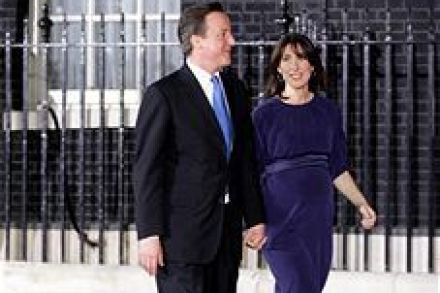Congratulations to Samantha and David Cameron
Coffee House congratulations to Samantha and David Cameron on the birth of their baby daughter. Here’s the Downing Street statement: “The Prime Minister and Mrs Cameron are delighted to announce the birth of their fourth child, a baby girl. Both the baby – who was born weighing 6lbs 1oz – and Mrs Cameron are doing very well. The PM and Mrs Cameron would like to thank the doctors and nurses at the hospital for their help and kindness.” No name, as yet – any guesses?
















